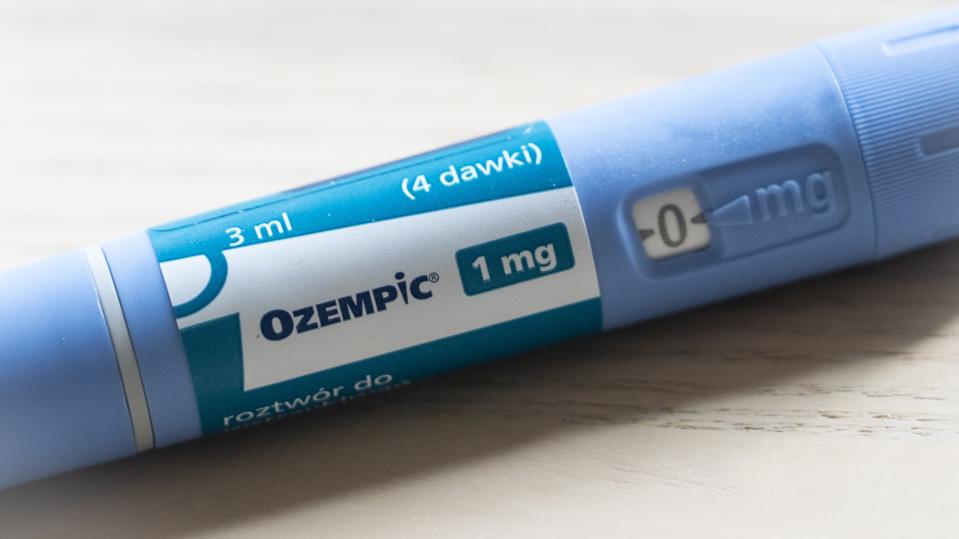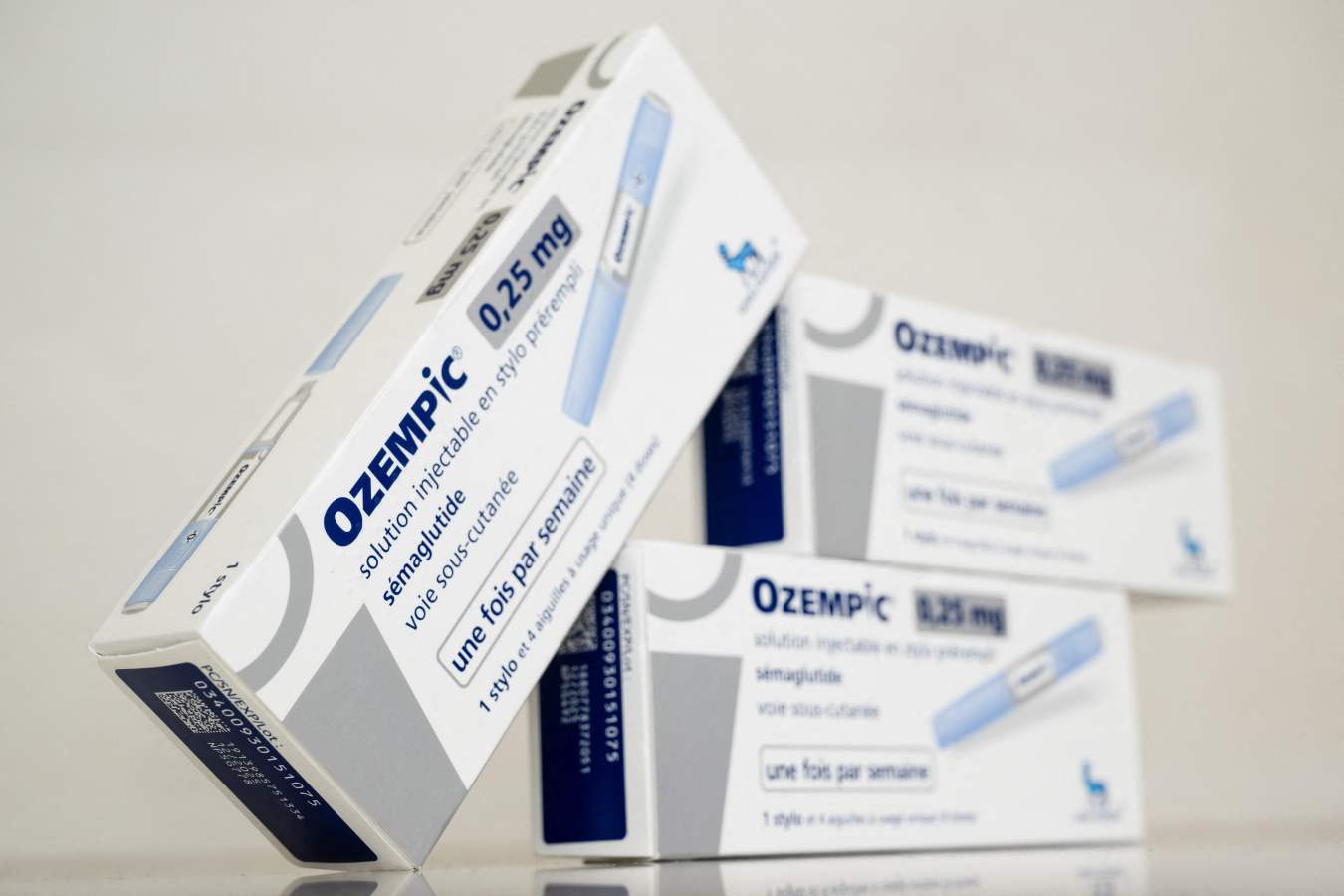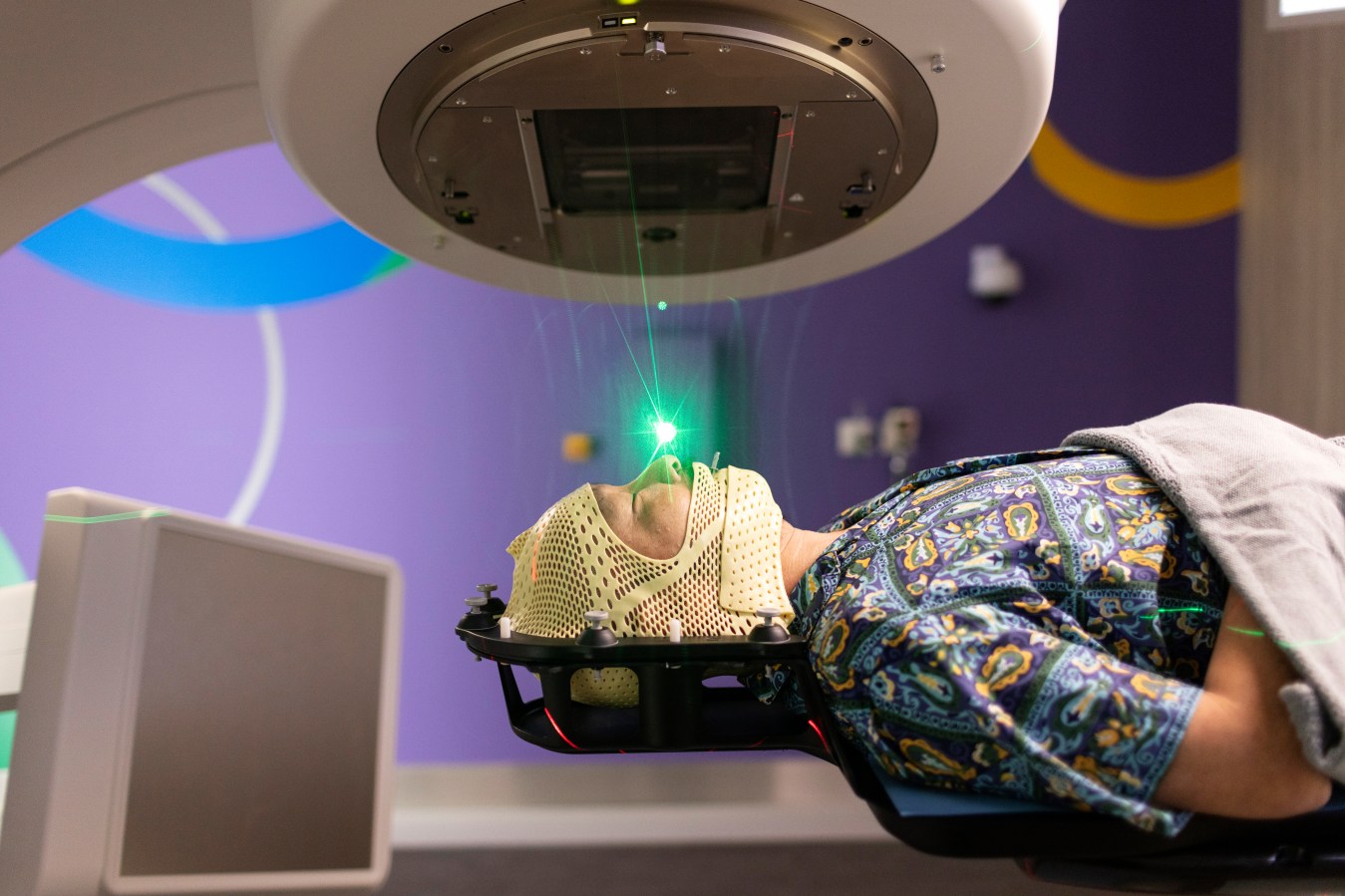A class of diabetes and weight loss drugs that includes Novo Nordisk’s Ozempic and Eli Lilly’s Mounjaro could also help protect against a variety of cancers, according to new research published Friday, adding to mounting evidence that injections offer numerous additional health benefits as pressure builds for insurers and public health providers to cover the popular medication in spite of persistent shortages and cost concerns.

Key Facts
- Glucagon-like peptide receptor agonists, a class of drugs often known as GLP-1s or GLP-1RAs, were associated with a “significant risk reduction” for 10 different cancers when used to treat type 2 diabetes compared to insulin, according to new research published in JAMA Oncology.
- The findings come from an analysis of the electronic health records of 1.7 million U.S. patients over 15 years who were prescribed GLP-1RAs, insulins or metformin for type 2 diabetes — all help control blood sugar — between 2005 to 2018, though it did not specify which drugs were examined.
- GLP-1 drugs, which mimic the action of a gut hormone and can help control blood sugar, include popular obesity and diabetes treatments like Ozempic and Wegovy (brand names for semaglutide), Mounjaro and Zepbound (or tirzepatide), Victoza and Saxenda (liraglutide) and Trulicity (dulaglutide).
- Semaglutide was only authorised for medical use towards the end of the study timeline and tirzepatide was not approved until much later, though findings for some drugs can give an indication for what might happen with closely related drugs.
- All of the 13 cancers studied are considered obesity-associated cancers as excess body fat has been linked to a greater risk of developing them and worse prognosis among patients who do.
- GLP-1RAs were linked to a greatly reduced risk of developing esophageal, colorectal, endometrial, gallbladder, kidney, liver, ovarian, and pancreatic cancers, as well as meningioma and multiple myeloma, compared to patients taking insulin.
- There was no firm evidence for a lower risk for developing the obesity-associated cancers compared to patients taking metformin for their diabetes, however, though the researchers said there were promising but statistically insignificant indications of a lower risk for gallbladder and colorectal cancer.
Surprising Fact
While GLP-1RAs were associated with a decreased risk for most obesity-associated cancers studied compared to other standard diabetes treatments, the researchers said drugs were also associated with a risk of developing some cancers. Compared to patients on metformin, patients taking GLP-1RAs had a higher risk of kidney cancers, the researchers said, though the risk was also lower than patients taking insulin. There have been no previous reports of kidney cancers associated with using GLP-1s, which are known to have direct effect on kidney function and have been linked to lower rates of kidney disease. Nevertheless, the researchers said the findings should be followed up for “full evaluation” and suggest the need for continuous monitoring of patients being treated with GLP-1RAs. There was also no significant reduction in the risk of developing thyroid cancer for patients taking GLP-1RAs compared to insulins, the researchers said. This finding adds weight to existing research highlighting concerns the drugs are associated with an increased risk of developing thyroid cancer and support warnings on drug packages advising caution among patients with endocrine or thyroid problems.
What We Don’t Know
The study was observational in nature and therefore can only determine relationships, not cause and effect. It’s possible the reduction in risk for obesity-associated cancers comes from the weight loss and diabetes control afforded by such medications, as these are both issues linked to higher risks of cancers, or from some action of the drug itself or another thing entirely. Given the data available, the researchers said the study doesn’t consider “newer and possibly more effective antidiabetic and weight loss agents,” which could show even more pronounced effects, as well as those with multihormone agonist activities that are increasingly coming to market (tirzepatide, for example, is a multihormone agonist).
Key Background
These results add to a growing pile of research suggesting the health benefits of popular weight loss and diabetes injections extend far beyond control of the conditions they were brought to market for, which themselves are implicated in a variety of physical and mental health problems. These data will be crucial to helping companies maintain an edge over competitors racing to bring their first products to market and will add heft to arguments the drugs should be funded by insurers, employers and public health authorities dragging their heels on coverage. A myriad of other conditions are being explored by drugmakers, including sleep apnea, addiction, anxiety, Parkinson’s and fatty liver disease and Novo Nordisk has already secured convincing enough data to add cardiovascular disease to Wegovy’s label.
This article first appeared on forbes.com.
Are you – or is someone you know -creating the next Afterpay or Canva? Nominations are open for Forbes Australia’s first 30 under 30 list. Entries close midnight, July 31, 2024.
Look back on the week that was with hand-picked articles from Australia and around the world. Sign up to the Forbes Australia newsletter hereor become a member here.


